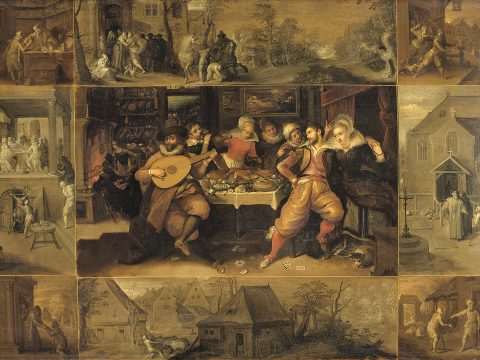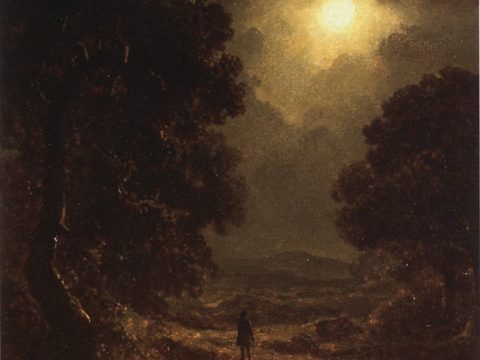
Now there is a twofold reflection upon the providential works of God.
One is entire and full, in its whole complex and perfect system. This blessed sight is reserved for the perfect state. It is in that mount of God where we shall see both the wilderness and Canaan, the glorious kingdom into which we are come, and the way through which we were led into it. There the saints shall have a ravishing view of it in its entirety, and every part shall be distinctly discerned, as it had its particular use, and as it was connected with the other parts, and how effectually and orderly they all wrought to bring about that blessed design of their salvation, according to the promise: ‘And we know that all things work together for good to them that love God, to them who are the called according to his purpose’ (Romans 8:28). For it is certain, no ship at sea keeps more exactly by the compass which directs its course, than Providence keeps by that promise which is its cynosure and polestar.
The other sight is partial and imperfect which we have on the way to glory, during which we only view it in its single acts, or at most, in some branches and more observable series of actions.
Between these two is the same difference as between the sight of the disjointed wheels and scattered pins of a watch, and the sight of the whole united in one frame and working in one orderly motion; or between an ignorant spectator who views some more observable vessel or joint of a dissected body, and the accurate anatomist who discerns the course of all the veins and arteries of the body as he follows the various branches of them through the whole, and plainly sees the proper place, figure and use of each, with their mutual respect to one another.
O how ravishing and delectable a sight will it be to behold at one view the whole design of Providence, and the proper place and use of every single act, which we could not understand in this world! What Christ said to Peter is as applicable to some providences in which we are now concerned as it was to that particular action: ‘What I do, thou knowest not now; but thou shalt know hereafter’ (John 13:7). All the dark, intricate, puzzling providences at which we were sometimes so offended, and sometimes amazed, which we could neither reconcile with the promise nor with each other, nay, which we so unjustly censured and bitterly bewailed, as if they had fallen out quite against our happiness, we shall then see to be to us, as the difficult passage through the wilderness was to Israel, ‘the right way to a city of habitation’ (Psalm 107:7).
And yet, though our present views and reflections upon Providence are so short and imperfect in comparison to that in heaven, yet such as it is under all its present disadvantages, it has so much excellence and sweetness in it that I may call it a little heaven, or as Jacob called his Bethel, ‘the gate of heaven.’ It is certainly a highway of walking with God in this world, and a soul may enjoy as sweet communion with Him in His providences as in any of His ordinances. How often have the hearts of its observers been melted into tears of joy at the beholding of its wise and unexpected productions! How often has it convinced them, upon a sober recollection of the events of their lives, that if the Lord had left them to their own counsels they had as often been their own tormenters, if not executioners! Into what and how many fatal mischiefs had they precipitated themselves if Providence had been as shortsighted as they! They have given it their hearty thanks for considering their interest more than their importunity, and not allowing them to perish by their own desires.
John Flavel. The Mystery of Providence.



